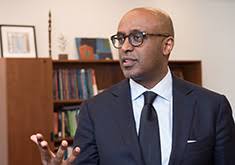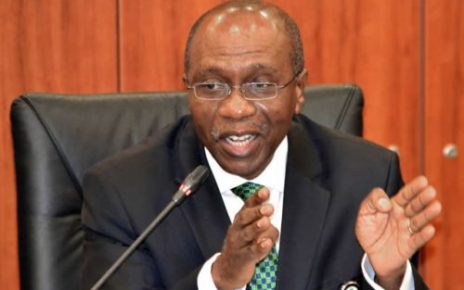The International Monetary Fund (IMF) on Thursday identified vulnerability to foreign debt as one of the major threats to Nigeria’s and other Sub-Sahara African countries’ economic growth in the years ahead.
The IMF Director in charge of Africa, Mr Abebe Selassie, who listed key challenges to growth in Africa, specifically noted that the countries’ debts were rising unsustainably, posing threats to their ability to deploy funds to critical areas that can drive economic development in their domains.
Noting that one of the consequences of the rising debt is that the countries’ resources are being channeled to debt servicing rather investment into growth enablers, the financial expert pointed out that apart from the need by the various governments to moderate borrowing, there was also the need for them to boost revenue to address their countries’ weak debt servicing ratio to GDP and tax-to-GDP ratio.
Reacting to the concerns raised by the countries’ debt stocks, the Director-General of the Debt Management Office (DMO), Ms Patience Oniha, told journalists on the sidelines of the on-going IMF/World Bank annual meetings in Bali, Indonesia that the Federal Government had a well-thought out borrowing plans.
She clarified: “Debt servicing means that you are able to repay your interest and principal when they are due so the key focus of that write-up is actually about revenue diversification. Maybe the media picked that report and chose to focus on debt which is what we’ve been saying”
“We can’t stop talking about it, the figures are there, we are not generating as much revenue as we should. When you compare your revenue to your GDP, it’s low. You just heard from this presentation that Malawi has a tax to revenue ratio of 18 percent while we are talking of six percent back home so something is wrong.
“We can’t run from the fact that we need to generate more revenue. “Generating more revenue does not mean we should focus only on increasing production in the Niger Delta or praying for oil prices to rise, we have to generate long-term revenue. How do you generate that? You have to enforce compliance, which is all about increasing the tax base and making sure that those who are paying are paying the correct amount and not just paying a small amount to escape.
“The option that was talked about here was about raising taxes, so let’s put it within context. I have lived in Nigeria for long to know that once anything happens to oil, we are panicking, why? Because oil at some point counted for 80% of our revenue and most of our foreign exchange comes from there so we can’t shy away from tax revenue”, Oniha added.
Speaking earlier during the presentations by Selassie, Nigeria’s Minister of National Planning, Udoma Udoma, had said Nigeria’s debt-to-GDP ratio of 19 percent was still low and sustainable, thereby posing no threat to the nation.
It would be recalled that the IMF had last April during the IMF/World Bank Spring meetings held in the Washington D.C, cautioned that the rising public debts in emerging economies may constitute direct risk to financial stability.
The IMF Financial Counselor and Director of the Monetary and Capital Markets Department, Tobias Adrian, gave the warning during the Global Financial Stability report presentation at the ongoing in Washington.
According to him, “rising foreign debts remain a big risk to financial stability. The debts that are accumulated quickly are deteriorating and could pose financial stability crisis in the future in emerging markets.”




